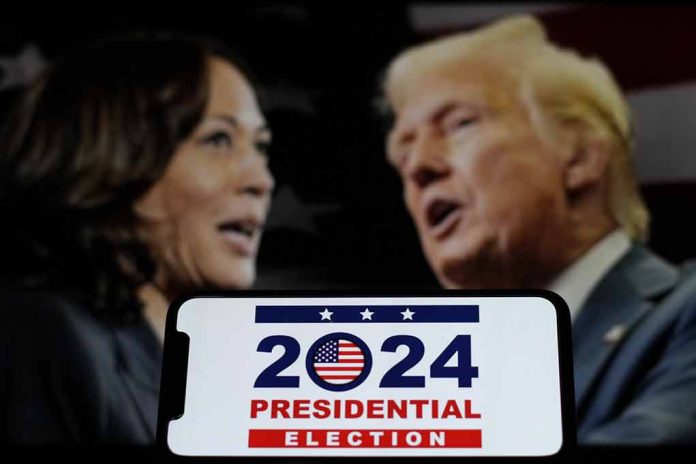
Former President Donald Trump recently took aim at Vice President Kamala Harris, criticizing her for avoiding unscripted news conferences. And, unsurprisingly, the partisan responses have been nothing short of predictable. If you’re one of those who long for the days when political discourse didn’t feel like navigating through a minefield, you’ll find this story both frustrating and illuminating.
The crux of the issue is Harris’ well-documented aversion to off-the-cuff engagements with the media. Trump supporters see this as dodging accountability, while Harris’ defenders argue it’s a smart strategy. However, let’s not ignore the elephant in the room: Harris’ record of terrible public speaking and gaffes doesn’t exactly bolster the confidence levels.
Polarizing Reactions and Heated Rhetoric
America’s political landscape is anything but united, and reactions to Trump’s comments demonstrate this perfectly. Trump is often accused of worsened political discourse in the U.S., and many Americans are stressed and prefer to avoid political conversations altogether. On this topic, it’s hard to disagree.
The issue isn’t just about Trump or Harris. The larger problem is the general decay in the quality of political debate in this country. Let’s face it, the back-and-forth sniping from political figures is neither respectful nor fact-based. “People demand higher standards of conduct from politicians of the opposing party compared to their own,” and it shows in how these discussions unfold.
Public Reactions and Partisan Interpretations
In a study conducted among American voters, it’s clear that partisanship plays a significant role in how people react to politicians’ statements. Trump’s baseless claims about hydroxychloroquine sparked polarized reactions, showcasing how partisanship greatly influenced public and media responses.
“Political misinformation cannot be fully eliminated by merely distinguishing fact from fiction due to voters’ moral orientations,” according to a comprehensive study.
The Impact on Political Dialogue and Public Trust
So, what’s the key takeaway here? Political discourse in the U.S. has become a battle of soundbites rather than a meaningful exchange of ideas. Social media platforms are criticized for failing to effectively remove offensive content, contributing to the fracturing of public trust.
Both Democrats and Republicans alike are guilty of factual and moral flexibility. In fact, “voters justify fact-flouting as an effective way of proclaiming a deeply resonant political ‘truth.'”
When discussing Vice President Harris’ reluctance to engage in unscripted news conferences, it ties back to a broader sentiment of partisanship influencing public perception. Given Harris’ public speaking record, it’s not surprising to see both sides of the aisle exploiting the situation for political gain.
Conclusion
In summary, reactions to Trump’s criticisms of Harris highlight the deep-seated partisanship that defines modern American politics. The lack of meaningful discourse, coupled with politicians’ moral flexibility, only worsens the public’s trust in their leaders. Although opinions about Harris’ approach to the media vary widely, the underlying issues of polarization and partisanship remain constant hurdles to constructive political dialogue.
For our readers, this ongoing saga serves as a reminder that regardless of one’s political allegiance, the focus should ideally shift toward fostering respectful and fact-based debates—admittedly, a tall order in today’s climate.
Sources
- Trusting the News Media in the Trump Era
- Seeing lies and laying blame: Partisanship and U.S. public perceptions about disinformation
- Trust in Government in the Trump Era














